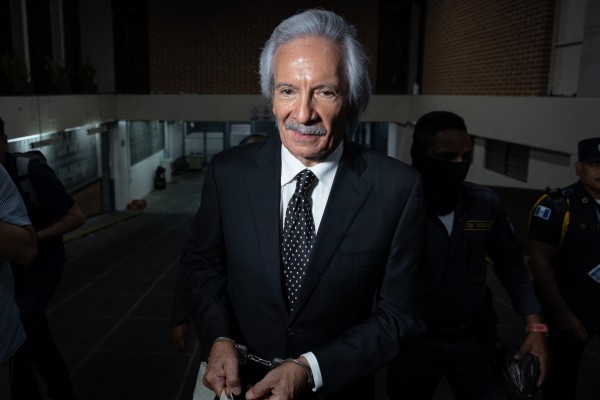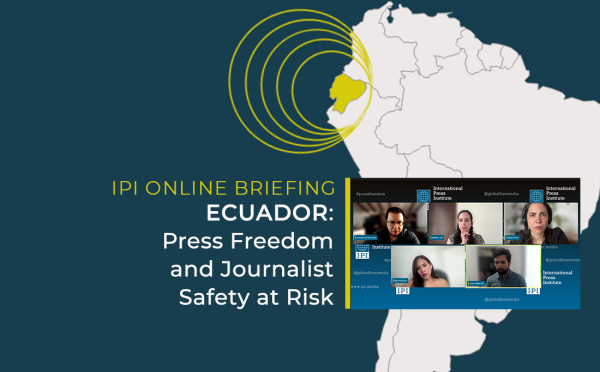At least 10 journalists in the northern Colombian city of Santa Marta were threatened with death after disseminating an interview in which a jailed former paramilitary commander alleged links between his organisation and local politicians, news reports said.
The commander, Jesús Gelves Albarracín, known as “El Canoso”, was interviewed on Sept. 7 by journalist Alejandro Arias for Radio Magdalena inside a Bogotá prison. During the discussion, Gelves, a former political leader of the right-wing Colombian Self-Defence Forces (AUC, according to its Spanish acronym), alleged connections between the AUC and prominent figures in Colombia’s coastal Caribbean departments, including the current mayor of Santa Marta.
On Friday, according to media reports, a bundle containing multiple copies of a death threat to ten journalists was found attached to the motorcyle of Odín Vitola Lerma, an editor at Radio Magdalena. The list of names included Arias and Vitola in addition to Radio Magdalena’s editor-in-chief and editors and journalists from Hoy Diaro de Magdalena and Opinión Caribe.
The authors of the death threat referred to themselves as “Office of the Caribbean” and wrote above the list of names: “Enemies deserve death so that they remain quiet forever,” according to a picture of the threat posted on Radio Magdalena’s website.
While the message does not mention the interview with Gelves, Radio Magdalena pointed out that the 10 names have in common their criticism of Santa Marta mayor Carlos Caicedo Omar.
International Press Institute (IPI) Press Freedom Manager Barbara Trionfi said, “We fully condemn the death threats aimed at journalists and editors in Santa Marta, Colombia, who were doing their job of bringing issues of public interest to light. We urge police to take this threat seriously and ensure the safety of these journalists.”
IPI today also expressed concern over reports that a judge in Peru has allowed a criminal defamation case against a journalist who had reported alleged environmental violations at an agricultural factory to go ahead.
According to a statement from Peru’s national journalist association (ANP, according to its Spanish acronym), Carlos Yofré López Sifuentes of Barranca.pe had covered the death of a Paramonga resident from pulmonary fibrosis, who was alleged by neighbours to have contracted the illness from inhaling chemical particles from the production of sugar cane in a Agro Industral Paramonga factory. López also referred to a ministry of agriculture report that criticised serious flaws in Agro Industrial’s own environmental impact study.
Agro Industrial responded vigorously to López’s report, opting to sue the journalist for aggravated defamation. According to the ANP, the company is seeking a three-year prison sentence for López, in addition to a fine of 50,000 nuevos soles (€15,000)
After the judge’s decision, Barranca.pe denounced AIPSA’s suit as “an intimidatory and abusive act … corresponding to a malevolent strategy that seeks to silence any type of complaint or legitimate protest by the people.”
IPI is one of the world’s leading voices opposed to criminal defamation laws. This year, IPI launched a campaign to abolish criminal defamation in the Caribbean.


